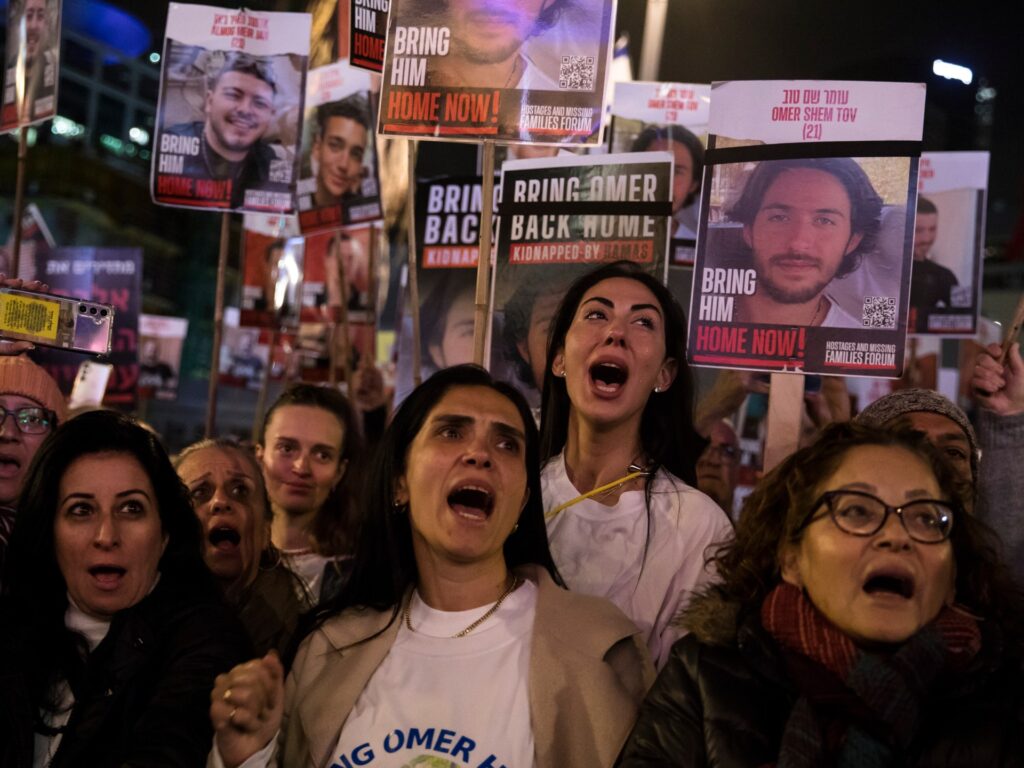In a Tel Aviv café, Sophia Or (17 years old) discusses in a low voice with peace activist Nave Shabatai Levin her refusal to serve in the military in the midst of the war that has been ongoing for more than 100 days in the Gaza Strip, for fear that someone will hear them.
Levin and Sofia realize that they belong to a minority in a country suffering from the shock of the aftermath of the attack of last October 7, as a study conducted by the “Midgam” Institute and published in the right-wing Israeli weekly newspaper “Makor Rishon” yesterday revealed that 92% of Israeli Jews support The war will continue until the Islamic Resistance Movement (Hamas) is eliminated.
Because of her refusal to serve in the military, Sofia faces the risk of military detention, in a country where conscription is compulsory for the majority of men and women starting at the age of 18, with exceptions for religious or medical reasons, but not for political reasons.
Brave decision
Naveh Shabatai (20 years old), who was imprisoned for 115 days last year before the outbreak of war for refusing military service, told Sophia, “Her decision to refuse service is brave… especially in times of war.”
“My conscience does not allow me to join,” Sophia says, expressing her regret, “because we are fighting fire with fire.”
She explained that she shared what she described as “anger” with the Israelis after the October 7 attack, and she knew one of the people who was killed at the music festival in the Gaza Strip, but she added that she immediately felt concerned by the “atrocities” that accompany military retaliatory operations.
Last December, Tal Mitnick (18 years old) became the first person to be arrested after the start of the 30-day Gaza war because he refused to participate in it, as he described it as a “revenge war,” according to what was reported by the “Mesarfoot” group – meaning “we refuse” in language. Hebrew – anti-war.
Since then, this group, which includes people who refuse to participate in the war, has not reported any further arrests, although many of its members have confirmed that they will follow in Mitnick’s footsteps.
The group includes a few dozen who reject military service and war, but the exact number of these people is unknown because many of them do not express their opinion publicly, and the Israeli army refuses to comment on this matter or give numbers.
Intimidation and threats
The day before yesterday, Saturday, Cindy (65 years old) participated in a small demonstration of war opponents in Tel Aviv, which quickly dispersed. “We are a minority, that’s true, but we exist, and the world should know that,” she said.
Like Cindy, other people interviewed by AFP during the demonstration did not want to give their full names.
Among them is Moran (37 years old), who hung a sign on his bike that read, “Yes to peace, no to war,” and said, “It is difficult to express your opinion against war.”
Faced with rhetoric from Israeli officials from all political stripes that asserts that the war will continue until its goals are achieved, opponents of the war say they are considered “traitors,” and some have received death threats.



